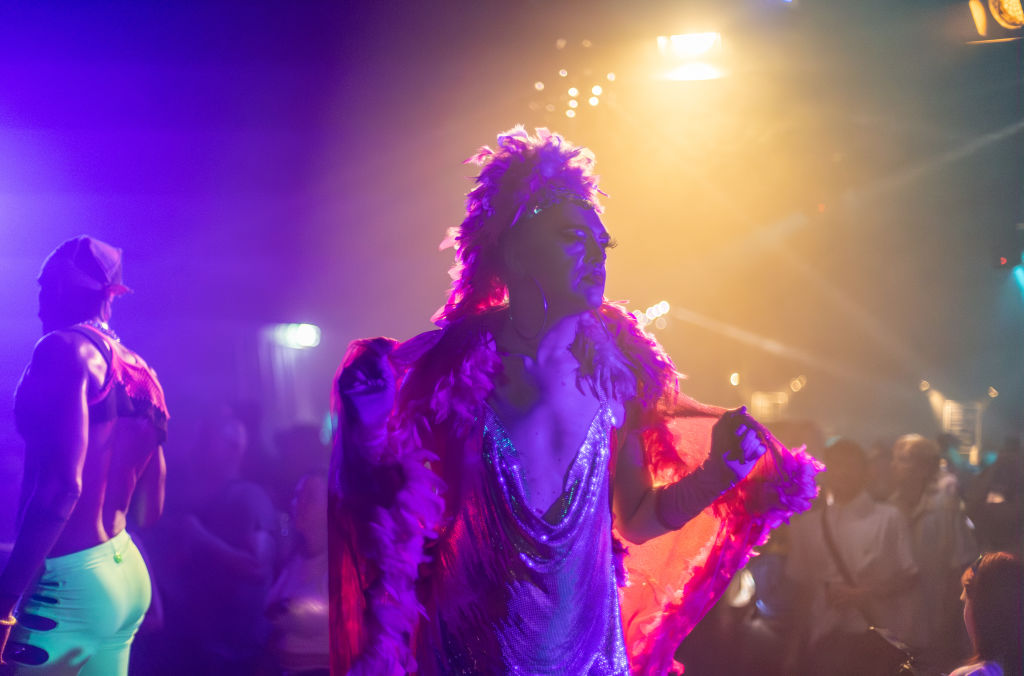The G-A-Y Bar in Soho’s Old Compton Street is to close for good this weekend. It opened in the mid-1990s, spinning off from the Saturday club night of the same name at the nearby Astoria (itself long gone, thanks to Crossrail). Entrepreneur Jeremy Joseph, who has run the ‘brand’ since its inception, posted the news on Instagram: ‘Old Compton Street has been my home and my work. When I opened G-A-Y Bar, it was to be one of the safest and most proudly LGBT streets – a place where you could be who you are and feel safe. For me, Old Compton Street has lost that LGBT identity. Old Compton Street wasn’t just a street, it was a community together as one. But sadly that’s not Old Compton Street anymore.’
If anybody had used the term ‘LGBT identity’ back in 1995 they would’ve been met with the blankest of looks. And the idea that the hustling, another-day-another-dollar of the commercial end of what was then called the gay scene formed a ‘community’ – a sort of leather-chapped version of Postman Pat’s Greendale – is ludicrous.
‘But Mr Joseph is right that Soho is a very changed little corner of London. It’s been a protracted demise into blandness.’
But Mr Joseph is right that Soho is a very changed little corner of London. It’s been a protracted demise into blandness. In 2010, the great singer-songwriter Marc Almond – who, if there were any justice in the world, should be regarded by that world in the same way as Leonard Cohen or Joni Mitchell – released the song ‘Soho So Long’, in which he tells Soho: ‘Everything I loved about you has almost gone.’ And if Marc Almond was through with Soho, you knew it was over.
I remember walking through it in the late 1980s, thinking the place was going a bit upmarket, as if Covent Garden were swallowing it inch by inch, like a boa constrictor. The really grotty and tough, sordid Soho was, for better or worse, long gone by my 1990s heyday – and the opening of the G-A-Y Bar.
Unlike Mr Joseph, I never thought who I fancied was anything to do with ‘who I am’. The idea of feeling safe in Soho is an odd one too. Surely the air of danger was part of the appeal?
But I am sad to see the G-A-Y brand meet its end. I did enjoy the club night back in the day, kind of, for its cheap and cheerful ambience – a dog-rough, provincial air that was unusual in a London venue. There was no sawdust, but plenty of spit. It even had a food stand in one corner, from which the tang of chip fat and frying onions would occasionally waft to the dancefloor. Then there were the tawdry, lowest-common-denominator turns: PAs from the truly naff – Sean Maguire, Abigail with her happy-house version of Nirvana’s ‘Smells Like Teen Spirit’, or Corrie’s Reg Holdsworth. ‘They’re playing a lot of Boney M tonight,’ my friend, high as a kite, said one night. I pointed to the stage: ‘Paul, they’re over there.’ The plebeian naffness of it was essential and joyous – and something that was smashed right into by the middle-class nonsense of ‘queer’. And then there came the hook-up apps – Grindr and Scruff and the like.
The apps stripped the frills, such as they were, from gay social life. The awful music, the terrible, trashy loudness of it all – why would you go to one of those bloody places again, when you could just get sex straight to your door, Deliveroo-style? Add to that scene the dismal iconography of ‘queer’ and LGBTQ+, and you’re pushing a product that nobody very much is going to be keen on.
Let’s be frank. Men go to gay clubs (or used to) to meet other men to shag. That is the main event. Start filling that space up with drag queens, men with ginormous hormone-induced breasts, munchkin women claiming to be gay men, etc., and you may have a colourful snap of misfits and misshapes to show off on Insta – but it’s not exactly going to arouse interest in the trouser department. There is a photograph on Mr Joseph’s Instagram accompanying his sad news that shows him surrounded by such characters. It looks rather like people who might be beamed on to the Starship Enterprise seconds before their planet explodes. Of course homosexual men will flock to the apps, where the gender-addled can be more easily ignored and avoided.
The clue was in the name – G-A-Y. Never has the advice ‘just do what it says on the tin’ been more pertinent.
Fortunately Jeremy has a fallback – the long-established club Heaven. ‘I hope to continue making Heaven a second home for so many LGBT+ people,’ he tells us. I can’t think of anything less homely than that place. Hard to believe, I know, but I was employed to gyrate upon a podium there on a few Wednesday nights back in nineteen hundred and frozen to death – something I very much doubt is a line on the curriculum vitae of any other Spectator contributor, past or present.
The removal of large-scale human interactions in Soho is just the gay version of the wider phenomenon of fragmentation and dislocation. ‘Soon all the cities will be as one, no use crying when they’re gone,’ as Marc Almond concludes in his song. Tech convenience leads to isolation. We are social animals, straight and gay, and we need to rough and tumble together in the physical world – not grind away in little boxes.








Comments